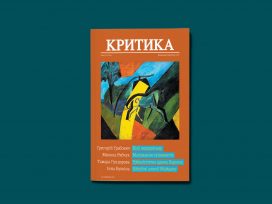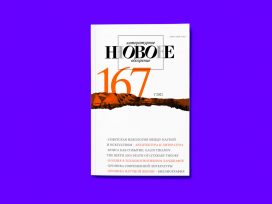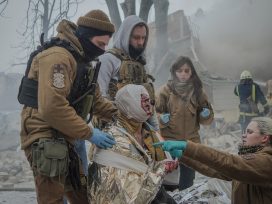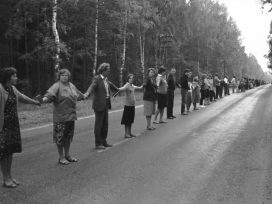In ‘Krytyka’ (Ukraine), Mykola Riabchuk explains why Kundera’s concept of Central Europe was about excluding anything east of Prague – and why recent developments have proven it redundant. Also: the literature of the Maidan and its folkloric origins; and Mykola Khvylovy’s Soviet orientalism.
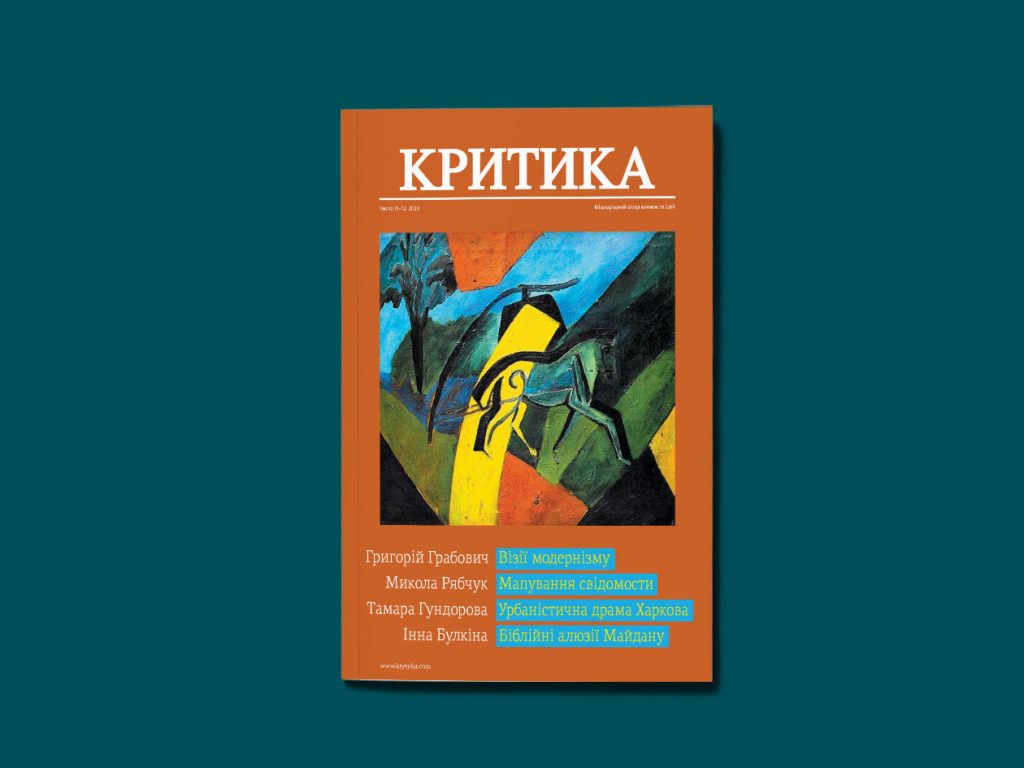
This occidentalist division of Europe, practiced by Churchill and Roosevelt no less than by Hitler and Mussolini, according to Riabchuk – posed eastern Europeans with a dilemma:
The gap between western ideals and western realpolitik may not be scandalous as such, argues Riabchuk, citing Hans Morgenthau’s dictum about the incompatibility between politics and ‘ethics in the abstract’. However: ‘there is also a dangerous loophole in a seemingly logical argumentation that allows immoral steps to be represented as pragmatic, reasonably calculated and the only ones feasible.’‘On the one hand, they had many good reasons to feel betrayed by the West, belittled and alienated. This could result in zealous anti-westernism, nationalism, xenophobia, isolationism and autarky. But this ideological niche had been already occupied by the Soviets. Very few independently minded easterners wished to identify themselves with the hated regime and join its anti-western crusade. However hard their feelings towards the haughty and arrogant West, they had to choose it as the lesser of two evils.’
Two developments in the last decade have anyway put paid to philosophical geography. First, the illiberal counter revolution of two of the most enthusiastic Central European nations: Poland and Hungary. And second: ‘a series of democratic, anti-authoritarian and, in most cases, pro-European revolutions that occurred in the post-Soviet space in the past decades prove that freedom, dignity and rule of law are universal values, and neither western nor “Central” Europe have any monopoly on them.’
Maidan folklore
Inna Bulkina examines literary works generated by the events in Kyiv in 2014. Looking at both popular ‘hits’ from the website stihi.ru and ballads from The Life of Mary, the first post-Maidan collection of Serhiy Zhadan, she asks how ‘spontaneous’ and ‘professional’ literatures coexist and what their sources, key plots and cultural ‘precursors’ are. Bulkina concludes that in most cases, the canonical genre is the folkloric ‘lament’ (plach), and the crucial plot is that of the Annunciation.
Soviet orientalism
Tamara Hundorova argues that Mykola Khvylovy’s (1893–1933) history of Kharkiv from hamlet to major Ukrainian city reflects a modernist trend in which industrialization is endowed with satanic power. Khvylovy’s ‘Asian Renaissance’ has not yet been considered in terms of Edward Said’s Orientalism, but doing so would significantly expand the meaning of this cultural-philosophical idea.
This article is part of the 3/2021 Eurozine review. Click here to subscribe to our weekly newsletter to get updates on reviews and our latest publishing.
Published 17 February 2021
Original in English
First published by Eurozine
© Eurozine
PDF/PRINTNewsletter
Subscribe to know what’s worth thinking about.
Related Articles

The ‘Trump–Putin deal’ again places Ukrainians in a subaltern role. The leaked contract with its fantasy $500 billion ‘payback’ has been compared to Versailles, but the US betrayal recalls nothing so much as Molotov–Ribbentrop.

Ukraine faces its greatest diplomatic challenge yet, as the Trump administration succumbs to disinformation and blames them for the Russian aggression. How can they navigate the storm?


